📚 15 Books mentioned in "Francis Ford Coppola's First Podcast: How Philosophy Has Inspired His Life and Career" of The Daily Stoic

Podcast: The Daily Stoic
Episode: Francis Ford Coppola's First Podcast: How Philosophy Has Inspired His Life and Career
Published on September 14, 2024
Here’s a list of all the books mentioned in this episode. Click on the links to watch specific excerpts on YouTube and feel free to purchase the books if they caught your interest!
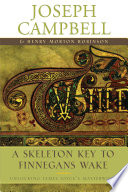
A Skeleton Key to Finnegans Wake
Buy A Skeleton Key to Finnegans Wake by Joseph Campbell, Henry Morton Robinson on Amazon
And maybe a period where it's an apparent disaster, but over time, you know, I once read an article that James Joyce was talking about 'Finnegans Wake.' And he said, 'I'm going to put so much interesting stuff in this that it's going to take, you know, uh, 50 years for people to figure out what's in it and it'll sell the whole time.'
The guest references a quote from James Joyce regarding 'Finnegans Wake,' explaining how he believed the book would take decades for readers to fully understand, despite selling well throughout that time.
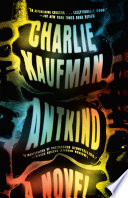
Antkind
Buy Antkind by Charlie Kaufman on Amazon
Sure, he wrote a book, a novel called 'Antkind,' a seven- or eight-hundred-page book called 'Antkind.' And that's what Google said: if you want to read something about being a... so I got it, and damned, if you know, as I said, everything I read changes my movie, but this book is changing my life because it's so, I finished it after 750 pages, and it was not unsatisfying.
The guest discusses reading Charlie Kaufman's novel, 'Antkind,' which he describes as a significant influence on his life. He notes that after finishing the 750-page book, it has profoundly impacted his perspective.
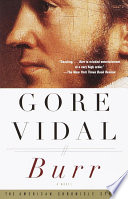
Burr
Buy Burr by Gore Vidal on Amazon
By the way, have you ever read Gore Vidal's book on Aaron Burr? No, that's another great book.
During the discussion, the host inquires if the guest has read Gore Vidal's book about Aaron Burr, to which the guest agrees and describes it as a great read.
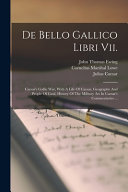
De Bello Gallico Libri Vii.
Well, the schoolboys in the founding of our nation were reading Caesar and the Gallic Wars. They knew it all by heart.
The guest mentions that the schoolboys during the founding of the United States were reading Caesar's writings on the Gallic Wars, indicating their familiarity with his work. This reference serves to illustrate the influence of classical literature on the nation's founding.
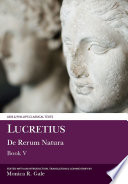
De Rerum Natura
Buy De Rerum Natura by Titus Lucretius Carus on Amazon
Yeah, on the nature of things.
The host implicitly references the poem 'De Rerum Natura' by Lucretius, indicating a familiarity with this classic work. The title reappears later in the transcript, highlighting its significance in the discussion of ancient literature.
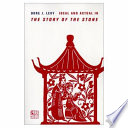
Ideal and Actual in the Story of the Stone
Buy Ideal and Actual in the Story of the Stone by Dore Jesse Levy on Amazon
For example, one time I chose a great Chinese book called "The Story of the Stone" or "Dream of the Red Mansion" written in the 16th century. I found myself trying to change Megalopolis to be more like that, which I actually did, because that was one of the few books I ever read where the dream life of the characters was as important as their waking life.
The guest discusses how reading 'The Story of the Stone' (also known as 'Dream of the Red Mansion') inspired changes in one of his films. He highlights the importance of the characters' dream lives in the narrative, illustrating the profound impact the book had on his creative process.
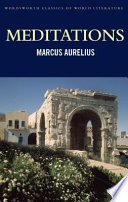
Meditations
Buy Meditations by Aurelius Marcus on Amazon
And speaking of books, just 'cause I know he's a through line in the movie, one of the characters quotes him a few times. What's your relationship with Marcus Aurelius's 'Meditations'?
The host inquires about the guest's connection to Marcus Aurelius's 'Meditations', mentioning that a character in the guest's recent film quotes Aurelius several times.
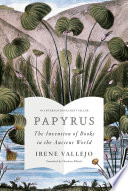
Papyrus
Buy Papyrus by Irene Vallejo on Amazon
I was just reading a book called "Papyrus," which covers the history of paper and early writings. One of the things the author notes is that scrolls, because they weren't books, were stored in specific boxes that often held seven scrolls.
The guest discusses a book titled 'Papyrus' that explores the history of paper and early writings, highlighting the difference between books and scrolls, particularly how scrolls were commonly stored in boxes that held seven scrolls.
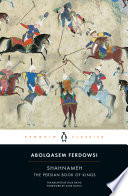
Shahnameh
Buy Shahnameh by Abolqasem Ferdowsi on Amazon
Have you ever read that beautiful Persian book called the Shahnameh by Ferdowsi? No, that's like Gilgamesh! It's an early Persian epic, and it's great—a tale of kings!
In the discussion, the host inquires if the guest has read 'Shahnameh' by Ferdowsi, remarking on its beauty and noting that it is an early Persian epic that tells a tale of kings.
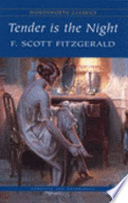
Tender is the Night
Buy Tender is the Night by Francis Scott Fitzgerald on Amazon
That it wasn't successful at first, so he and his editor straightened out something, I guess, I don't know which version I have. But I think what's unusual is that in the original 'Tender Is the Night,' there's a huge flashback in the middle of it that goes back and tells the story of Nicole and Dick Diver.
The discussion revolves around the book 'Tender Is the Night,' focusing on its initial lack of success and the unique structure involving a significant flashback that explores the characters Nicole and Dick Diver.
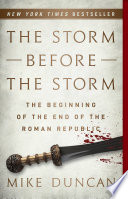
The Storm Before the Storm
Buy The Storm Before the Storm by Mike Duncan on Amazon
One of my favorite books is called "The Storm Before the Storm," and the idea is that we just see Caesar crossing the Rubicon one day as if it just popped into his head, as if there wasn't all this history and all these other events leading up to this major event.
The guest highlights 'The Storm Before the Storm' as one of his favorite books, emphasizing how it illustrates the often overlooked historical context that precedes major events like Caesar crossing the Rubicon.
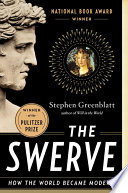
The Swerve: How the World Became Modern
Buy The Swerve: How the World Became Modern by Stephen Greenblatt on Amazon
There's a wonderful book that I recommend to you that you'll thank me a million times for; it's called "The Swerve." Have you ever heard of it?
The guest enthusiastically recommends 'The Swerve' to the host, describing it as a book that the host will greatly appreciate. The conversation later explores the book's theme surrounding the rediscovery of an ancient poem.
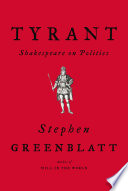
Tyrant: Shakespeare on Politics
Buy Tyrant: Shakespeare on Politics by Stephen Greenblatt on Amazon
He has a book called "Tyrant" as well, which I loved, but I was thinking there's a common theme between this movie and Apocalypse Now, as well as the theme of Shakespeare: the ability to find old stories and place them in a new context while preserving the arcs, characters, and morals.
The guest mentions 'Tyrant' by Stephen Greenblatt as a book that he loved. This reference serves as a segue into discussing the common themes between his movies, particularly focusing on how old stories can be reinterpreted while maintaining their core characters and morals.
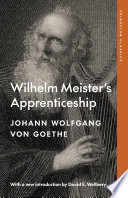
Wilhelm Meister's Apprenticeship
Buy Wilhelm Meister's Apprenticeship by Johann Wolfgang von Goethe on Amazon
He wrote a book called "Wilhelm Meister" and that was him stealing from Shakespeare. That is Goethe saying, "I want to be as much like Shakespeare as I can be," while Shakespeare was stealing from Plutarch, from Montaigne, from Danish legends, and from other plays—everyone has been stealing from one another.
In the podcast, the guest discusses Goethe's book 'Wilhelm Meister', highlighting how it serves as an example of one author drawing inspiration from another. Specifically, it illustrates Goethe's intention to emulate Shakespeare, while also noting Shakespeare's own influences from various sources.
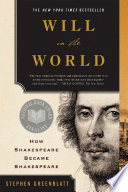
Will in the World: How Shakespeare Became Shakespeare (Anniversary Edition)
All right, let's talk because you mentioned Shakespeare. Greenblatt wrote this amazing book called "Will in the World" that I found incredible.
During the podcast, the guest highlights Stephen Greenblatt's incredible book, "Will in the World: How Shakespeare Became Shakespeare," as they transition into a discussion about Shakespeare.
